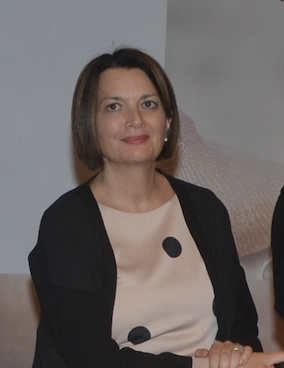

Thursday 29th October every year, is World Stroke Day. A day to foreground discussions on stroke prevention and treatment and emphasise how many sufferers and survivors there are around the globe. This all culminates in serving the mission to ensure better care and support for survivors and their families and reduce the risk of stroke; new and recurring. There are identifiable factors that influence the possibility of the onset of a new stroke and that of a recurring stroke for survivors. Lifestyle, family history, and other health indications (such as atrial fibrillation) all can play a role, but another element that is hardly known and spoken about is one of the biggest factors; sex and gender.
Stroke is a leading cause of mortality among non-communicable diseases (NCDs) for both sexes however, research shows that stroke is more detrimental to women. We speak with Prof Valeria Caso, stroke neurologist at the University of Perugia Stroke Unit (Italy) and former president of ESO (European Stroke Organisation) about the gender disparities related to stroke and how through studies such as PRESTIGE-AF, the work that is being done to reduce the gap, and ensure equitable treatment and prevention.
“Specifically, women have higher overall lifetime risks of stroke along with higher rates of mortality and disabilities”, says Prof Caso whose personal scientific focus has been stroke in women. “In terms of risk factors for stroke, atrial fibrillation leads to higher incidence and more severe thromboembolic events (blood clotting) for women. Moreover, women tend to seek medical attention later than men as they are more likely to be living alone.”
Women are at increased risk with more detrimental outcomes but surprisingly, as Prof Caso tells us, their presence in scientific research is marginalised. “To date, women have been under-represented in major randomised clinical trials. The surrounding safety and efficacy results for women is not an accurate reflection of reality and this in turn, stroke prevention and treatment recommendations and guidelines are severely distorted.”
Prof Caso goes further to say that this under-representation has been suggested as a reason why women having more drug-related adverse events. “Specifically, most randomised controlled trials (RCTs) and meta-analyses on the use of antithrombotic agents (anti blood clotting drugs, for example) in cerebrovascular disease have neither performed sub-analyses on sex-related differences nor adequately represented women in their sample size. In 2005, the European Society of Cardiology, and the European Medicines Agency recommended a significant representation of women in clinical trials.”
“In 2016, the Motion for a European Parliament Resolution on promoting gender equality in mental health and clinical research underlined the fact that clinical trials of pharmaceutical products on both men and women are necessary and that these should be inclusive, non-discriminatory and performed under conditions of equality, and inclusion.”
The male-female ratio in stroke trial today still does not reflect the real world situation. Women may be more difficult to include in RCTs because they tend to be older at stroke onset, have more comorbidities, and are more likely to have pre-existing functional impairment. The work Prof Caso and her team will be doing in the PRESTIGE-AF Horizon2020 project is to identify sex-and gender related barriers that may be an undercurrent in the marginalised representation of women in clinical trials of stroke prevention. One of the main goals is to develop strategies on how to promote gender equality in stroke trial participation.
Prof Caso says the main objectives to address gender and sex disparities are clear. We need to “understand the attitudes of female and male physicians regarding the participation of women as opposed to men in RCTs of stroke prevention and we need to understand the differential attitudes of female and male stroke patients in such RCTs. This extends to identifying the psychosocial factors underlying the differences. Finally, we will develop strategies to increase awareness of physicians and of patients for the importance of participation of women in RCTs.”
The work of Prof Caso in the PRESTIGE-AF project is summarised on the PRESTIGE-AF website.
Feature image by Joshua Coleman (@joshstyle) on Unsplash
